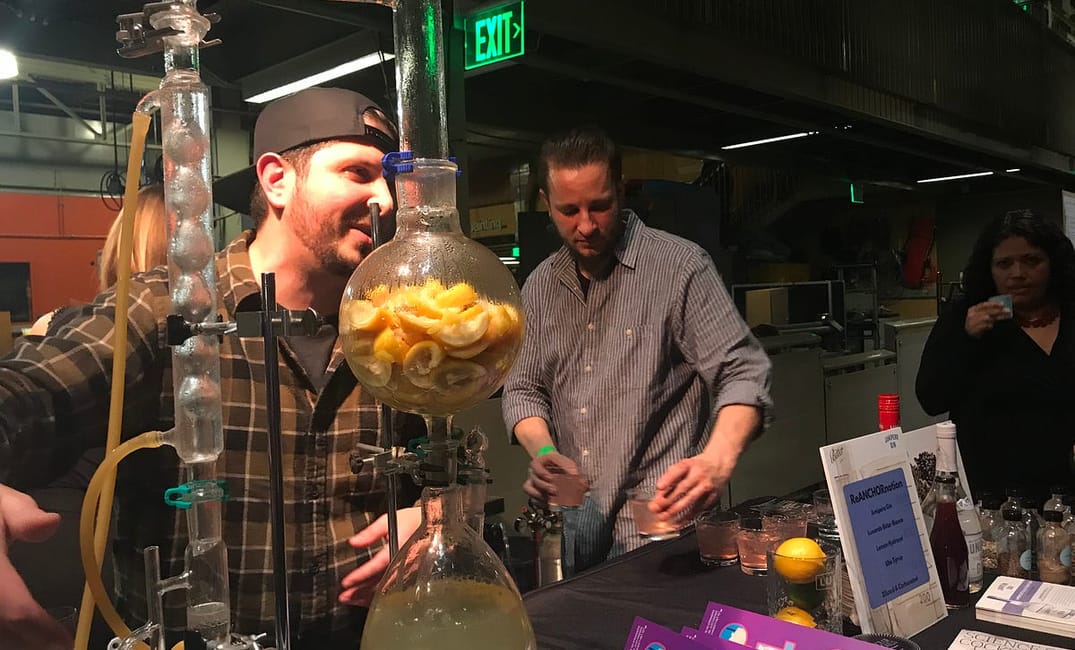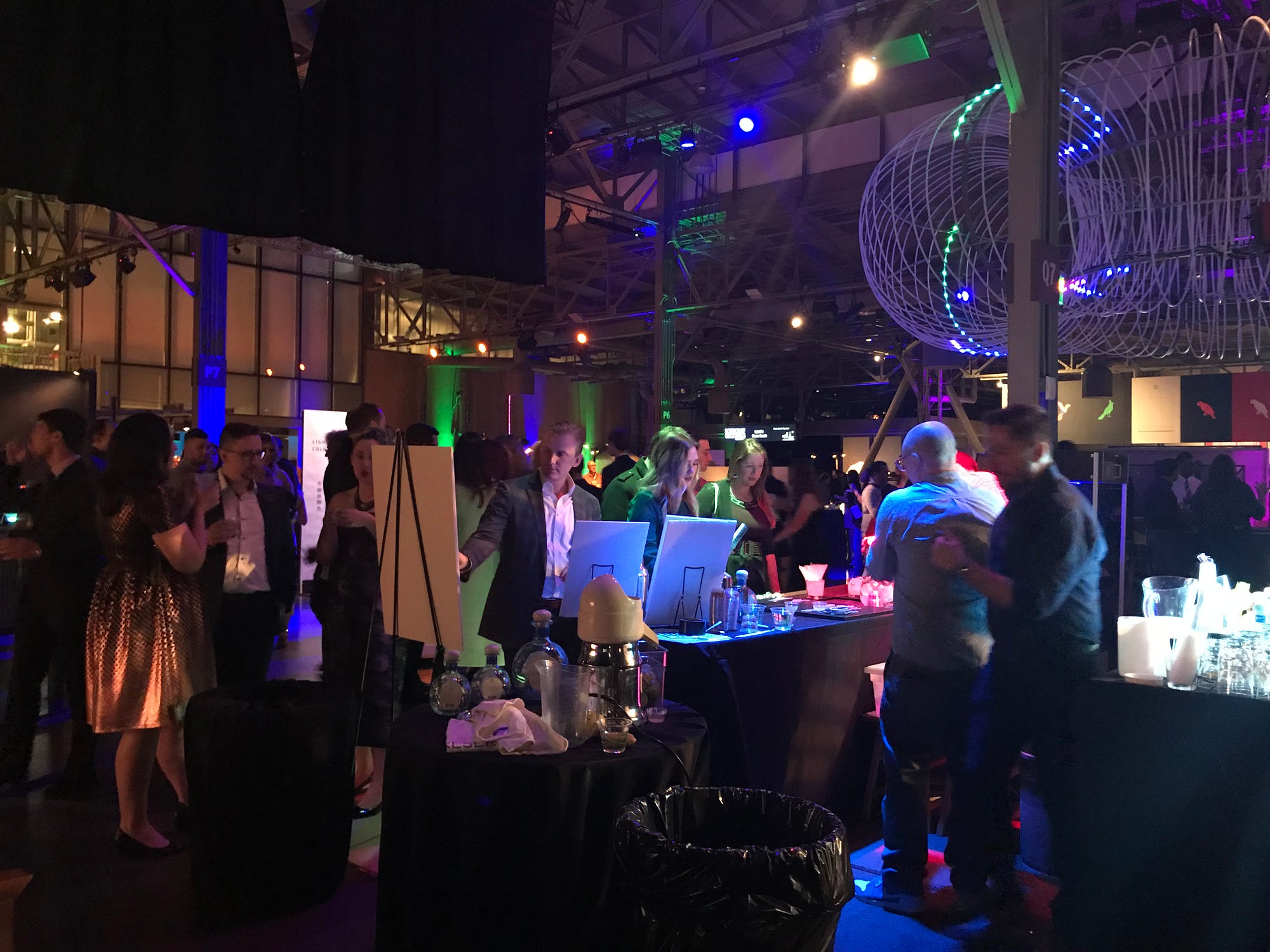
Last Friday, well-dressed science enthusiasts lined up outside the Exploratorium in San Francisco for the eighth annual Science of Cocktails event — a night that “combines the art and science of mixology, and gives attendees a chance to do good while having fun.”
A fundraiser for the Exploratorium’s education initiatives, the Science of Cocktails invited attendees to engage in a few boozy learning moments — and not the kind that involve embarrassing drunk texts. While sampling from open bars spread across the entire museum, attendees munched on dumplings, macaroons, sandwich bites and paella before going off to play and learn with the Exploratorium’s current exhibits. A wide variety of speciality beverages were offered from bars, wineries and dining hotspots, ranging from bigger distributors, such as Deschutes Brewery and Bulleit, to Bay Area local spots, such as Paper Plane bar and Bluxome Street Winery. Some of the open-bar offerings were simple and to the point, while others required quite a bit of concocting.
“We’re taking citrus that typically would have been thrown away…but instead of doing that, we’re distilling hydro-salts out of it,” said Patrick Braga of Paper Plane bar in San Jose, gesturing to a mad-scientist-looking contraption that was responsible for a tasty gin cocktail called Reincarnation.
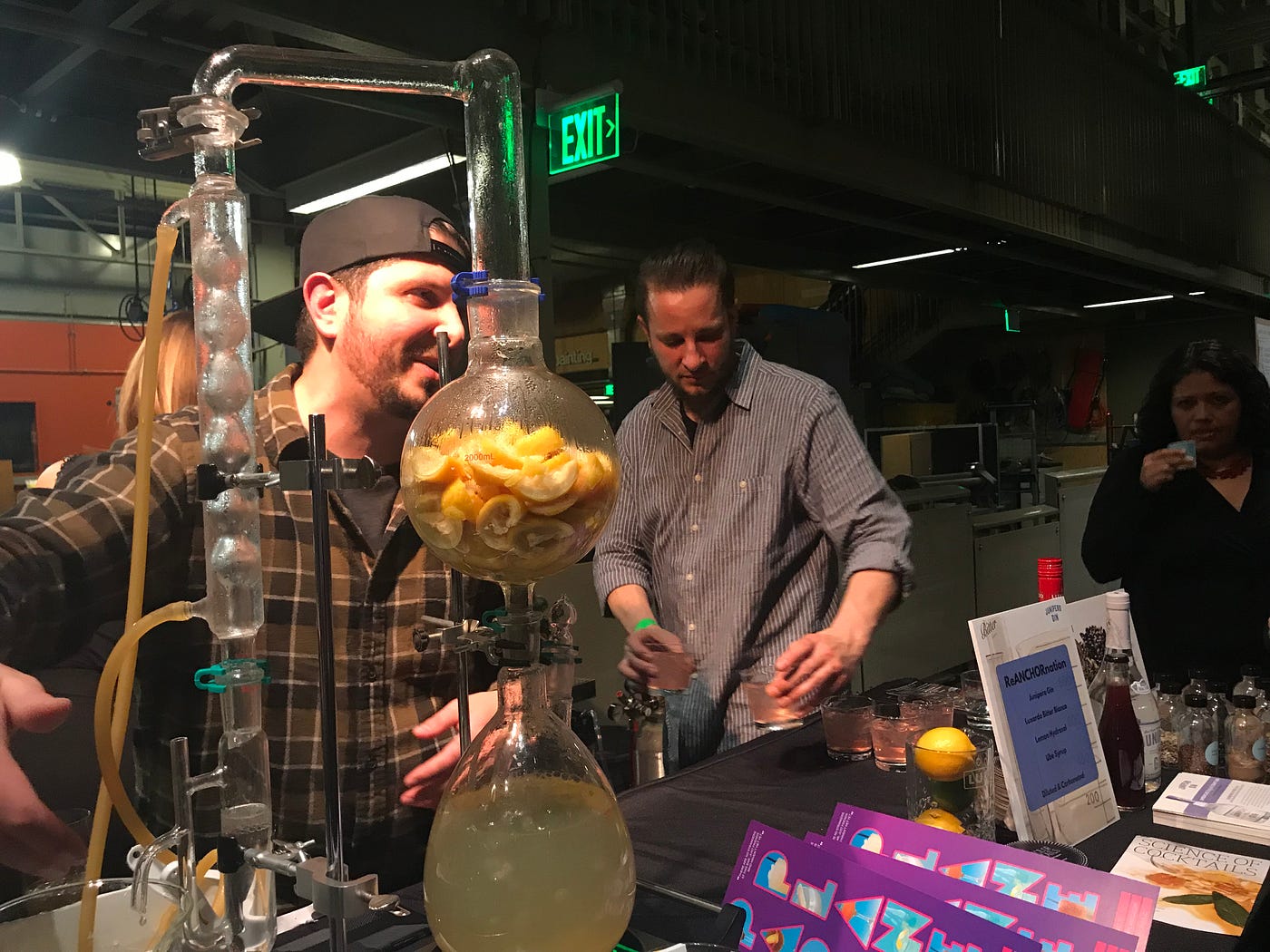
“It’s a fun way to experiment with our wine and meet other people in the industry,” said Sara Zuleta of Bluxome Street Winery, which was serving their take on a Manhattan topped with a red wine.
For those who wanted a light little non-alcoholic something to sip on, GT’s Living Foods’ kombucha was ready to be poured in the perfect spot — right next to the exhibit on microbes and bacteria.
“There’s a lot of science that goes behind the art of fermentation,” said Brady Leffler, of GT’s Living Foods’ research-and-development team. “We’re trying to bring our product to this event and make it not super-complex or confusing.”
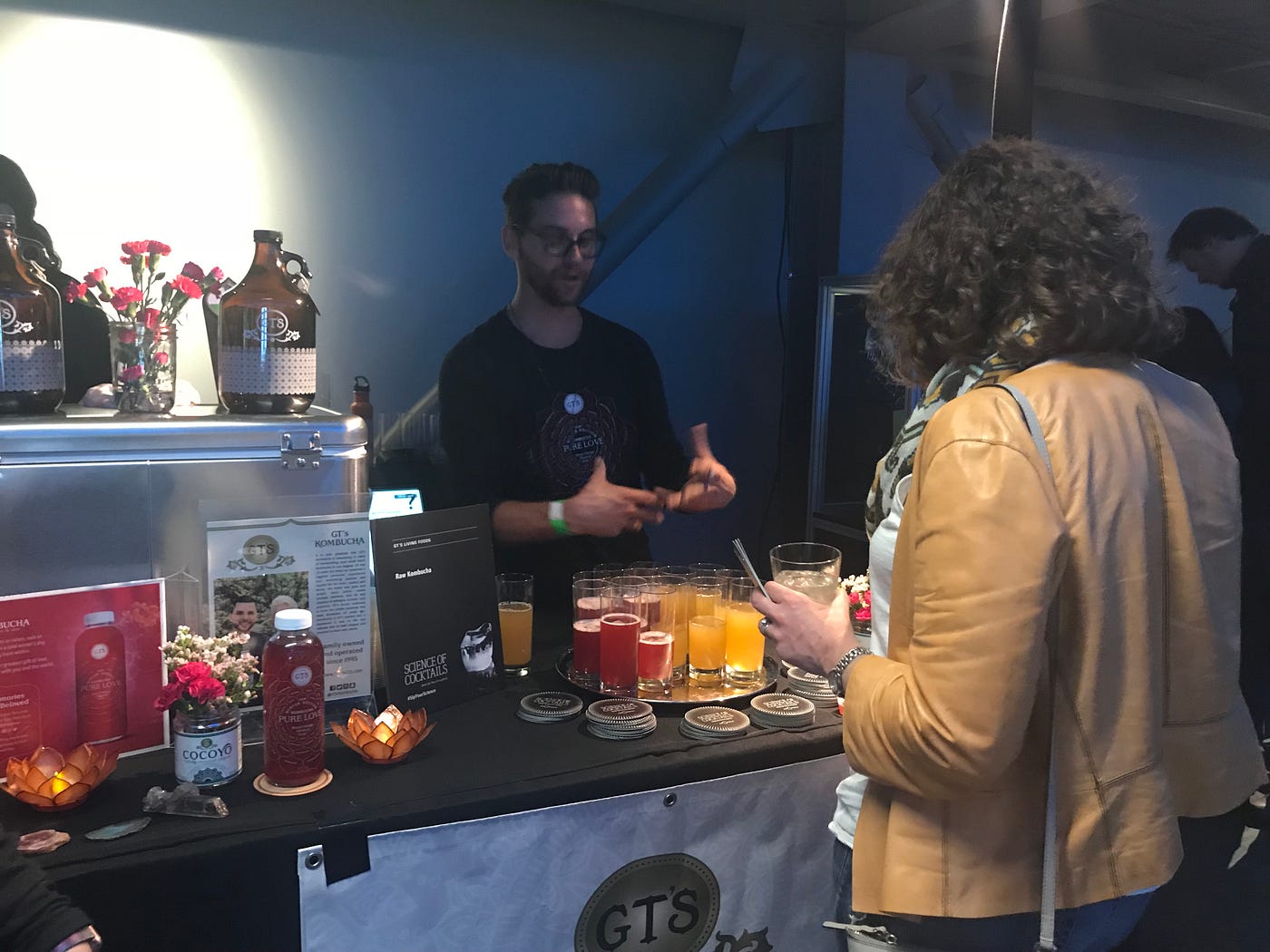
As the night progressed, more and more people began to dive into the Exploratorium’s many exhibits. Groups of adults with cocktails in hand posed with light and shadow boxes, peered into bug enclosures and played with partner experiments, making faces through mirrors and whispering across the noisy room. For a museum that is frequently associated with a younger crowd, these grown-ups got their hands dirty with science.
“This is one of my favorite nights of the year at the Exploratorium,” said Martin Rock, associate director of communications. Rock said he sometimes stops at exhibits on his way home from work because he’s amazed at how much can be learned by playing. “The Science of Cocktails is great in part because after a few drinks, adults remember how to play. I love the idea that an adult environment can also be devoted simultaneously to playing and learning.”
As Tierney Sneeringer, communications specialist at the Exploratorium, puts it, “The idea is to have a fun space where adults can continue to play and learn and interact with our exhibits and have the space and time to do that. The Science of Cocktails provides our supporters a chance to activate everything that’s at the Exploratorium — and we want them to know that they’re supporting education while they’re doing it.”
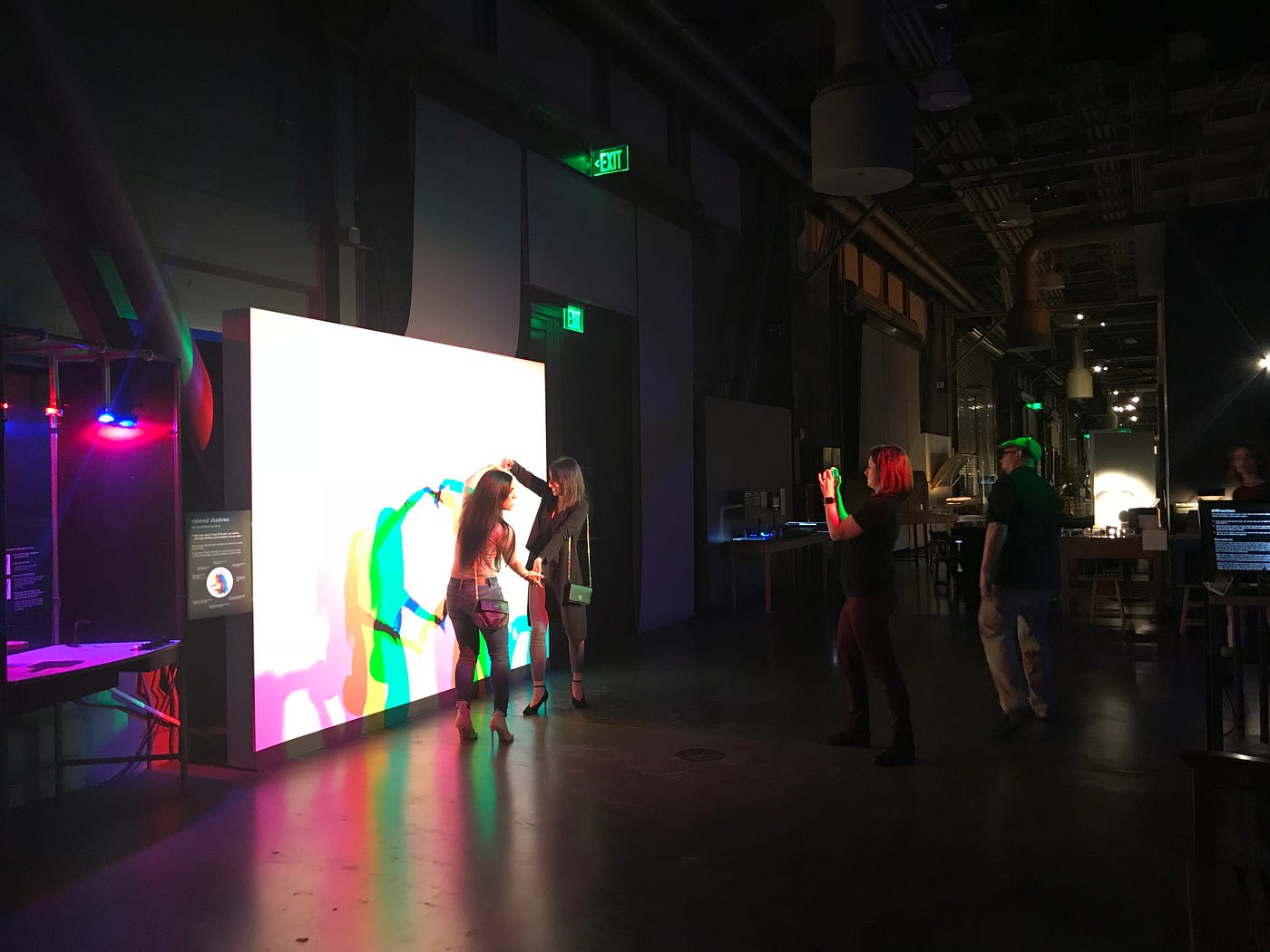
Tickets for the the Science of Cocktails ran between $150 and $205, and all proceeds go toward the Exploratorium’s education initiatives. Some of these initiatives include Xtech, which provides technology experiences to youth who are underrepresented in STEM fields, and the Summer Teacher Institute, which offers professional-development courses for middle school and high school math and science teachers.
“[The Exploratorium is] involved in teaching NGSS, which are the Next Generation Science Standards” said Rock. “[At the Summer Teacher Institute,] a number of teachers from all over California come to the Exploratorium to learn about the exhibits here, and then they use our exhibit-development shop to build their own smaller versions of those exhibits, which they can take back to their classrooms.”
Some of these exhibits are available in the form of “snacks” from the Exploratorium, which are sets of instructions and materials lists that can be found on the Exploratorium’s website for free.
While the Science of Cocktails happens only once a year, the Exploratorium offers a wide range of “adults only” evening events in their After Dark series, with everything from the Science of Food, which includes pairings and tastings, to Sexplorations, which dives deep into the exchange of genetic information and the inner workings of human genitalia. For more information about the After Dark events, visit the Exploratorium’s website.



